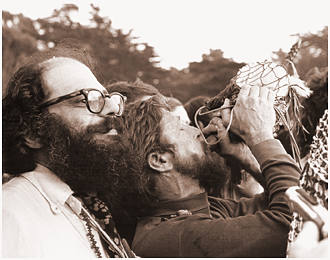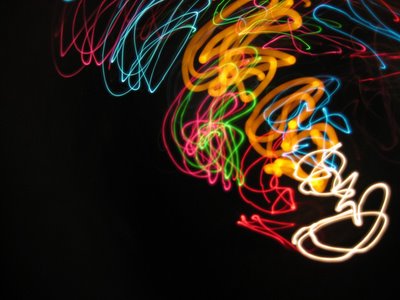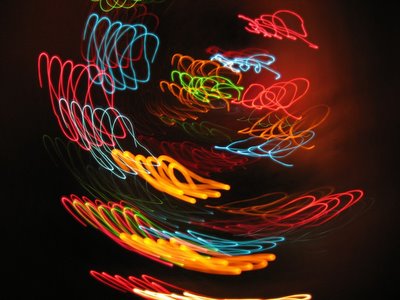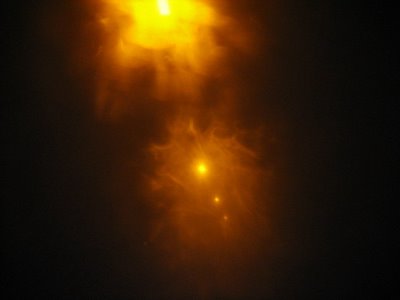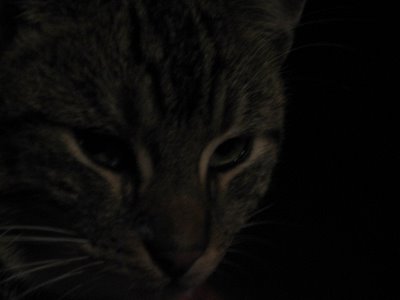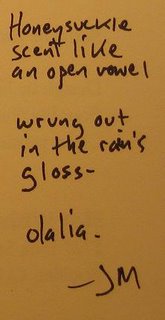Smoke gets into everything:
bitter honey,
autumn's distillation, bears
an aftertaste
of cats
and muscatel.
When privet
dominates, hives
disperse in sparks
through private darkness,
filling cells
with evidence of elsewhere:
spores of cockle,
rush, and dock;
contraband,
perfume, and punk.
Even you (asleep
and breathing deeply)
open from the core
to all that you are not.
Devin Johnston
